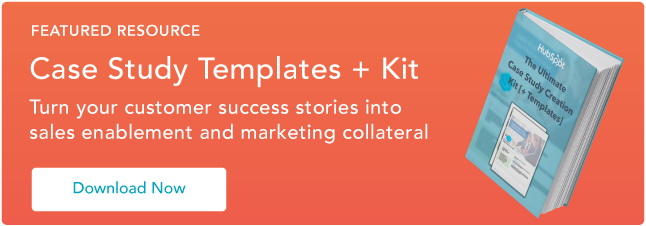Imagine you're working in a garden when suddenly, you're stung by a swarm of bees who mistake you for a flower. You go to the doctor seeking assistance and after a short wait in the exam room, your doctor walks in, says hello, and hands you a prescription for cholesterol medication — no questions asked.

Needless to say, cholesterol medication won't remedy your bee stings and your doctor has failed to properly diagnose you before prescribing a solution. No doctor would walk into an exam room holding a prescription that's already filled without first diagnosing their patient. They would ask you a series of questions, run preliminary tests, and collect information before offering a solution.
This example may sound silly, but it's a metaphor for how some companies manage their customer experience. Rather than obtaining data and asking for feedback, they impose their own ideas of what is "necessary," "helpful," and "useful" to the customer. This creates friction because these brands aren't listening to their customers when making changes to their products and services.
While you should certainly trust your marketing, sales, and product development teams, they shouldn't be the only resources you consider when making changes to your business. Customer feedback is one of the most valuable assets you can leverage in these scenarios because it not only guides your decision-making process, but it helps you predict how customers will react to a particular change or event.
In this post, we'll talk about obtaining customer feedback by interviewing customers about their experience with your business. We'll explain what a customer interview is, its benefits, and some tips for conducting them at your company.
What Is a Customer Interview?
You could put the world's most brilliant minds in one room and have them come up with new products and services for your business, but unless any of those people understand the needs of your customers, their product or service is going to miss the mark.
A customer interview allows you to speak to the people that matter most — the ones who buy your product. It's a great way to find out what plagues your customers, what solutions they're looking for, and how you fare compared to your competitors.
Customer interviews can be conducted in two ways. The first way is a planned interview. These interviews are scheduled in advance and they ask customers a variety of questions either related to their overall brand experience or an individual interaction with the business. These interviews will typically last longer than the second type of interview — which is ad hoc.
Ad hoc interviews are conducted one-on-one, either in person, on the phone, or through video software. While online surveys are very convenient and accessible, ad hoc interviews allow you to have a real-time conversation with the customer so you can ask about specific experiences and events.
Now that we're familiar with the two types of customer interviews, let's look at some of the benefits of gathering this feedback.
9 Benefits of Customer Interviews
1. You can assess customer demand.
When you're considering a new product or service — or even a new business — you should first identify the demand for it with your customer base. After all, you wouldn't develop a new product that no one is going to buy. Customer interviews can help you assess customer demand and whether or not your target audience would be interested in your product, service, feature, or promotion.
2. You highlight customer pain points.
One common use case for customer interviews is understanding the pain points that customers experience with your products and services. This helps you improve the pre- and post-purchase experience and demonstrates that you value long-term customer success.
3. They help you understand customer needs.
Customer interviews are great for uncovering customer needs because you can have an in-depth conversation with your target audience. You can ask about specific experiences and prompt follow-up questions if something is unclear or confusing. And, the more you understand your customers' needs, the more effective your marketing, sales, and customer service efforts will be.
4. You get inspiration for product development.
We've all done this at some point as customers. We think of a great idea to improve our favorite brand or product and we wish we could talk face-to-face with a product developer to bring our idea to life.
Customer interviews present this opportunity for customers to share their ideas with your business. Even if their ideas are far-fetched or implausible, they reveal what your customers are looking for from your business and what you can work towards down the road.
5. You'll empathize with your customers.
If you don't work in customer service, customer interviews are a great way to understand the roadblocks that your customers are going through when interacting with your business. When you're familiar with their problems, it becomes much easier to empathize with them when they share feedback. You not only get to see how the customer is affected by the problem but also why it's so important to get it fixed.
6. You can identify new target audiences.
Some businesses add new products and services that aren't targeted towards their usual consumers. For example, Nerf was originally a brand intended for kids but recently started selling products targeted towards pet owners. To understand the opportunity in this market, Nerf likely interviewed potential customers to see if they would be interested in buying Nerf-branded pet products.
You can do the same at your business to see who would buy your new product, service, or feature. If the response is negative, you can either make changes to your offer or get rid of it altogether to avoid making a costly mistake.
7. They help you learn your customers' vocabulary.
If you work in a customer-facing role, then you have experience talking with customers. If you don't, then you might not be as familiar with the language and vocabulary that your customers are using. If you use business jargon or highly technical language, your customers might not understand what you're talking about. Customer interviews are a great chance to learn how your customers speak so you can communicate with them more effectively.
8. They develop trust with your customers.
Customer interviews are still useful even if you don't obtain any valuable information from the conversation. Regardless of what you talk about, they show customers that you're interested in their experience and that you want to improve it for them. Even if they spend an hour pitching irrelevant ideas and spouting nonsensical criticisms, having these conversations demonstrates your commitment to customer success.
9. Customer feedback helps you make successful business decisions.
Successful organizations always consider customer feedback before making any business decisions. Customer feedback tells you what customers are thinking about your business and how they think you can improve it. Following their lead will only improve your business strategies and create a better customer experience over time.
Now that we've laid out the benefits of customer interviews, let's learn how to conduct them with your customers.
How to Conduct Customer Interviews
1. Understand your goal.
Before you come up with questions, you should first set a goal for your customer interviews. What are you hoping to get out of your time spent with the customer? Are you developing a new product and want to get feedback from your existing customer base? Or, are you looking to better understand the customer journey so you can streamline their experience?
You can go into an interview with multiple goals, but clearly defining them beforehand will save you both time and energy.
2. Identify ideal customers.
Similar to having a goal in mind, you should also think about the ideal customers that you want to speak to. If you have a CRM, you'll have a bank of customer contacts that you can look through and reach out to. Once you identify who would be a good fit for your interview, you can use their information as a persona that will help you identify other potential customers to talk to.
3. Approach interviews with an open mind.
It can be very easy to hear negative comments about your product or service and slip into a defensive mode. While you may feel justified in shooting down this feedback, the fact is that customers are sharing how they experienced your company and its products — and their feelings can't be argued with.
When you're going into these interviews, realize that you may hear some comments or feedback that you don't agree with. Rather than shutting them down and wasting everyone's time, hear them out. You'll always have a few outliers with odd feedback, and those are not the comments you need to be concerned with. You want to hear the recurring issues that customers cite so you can make the necessary changes for their benefit and yours.
4. Ask pertinent questions.
As you prepare for interviews, you should create a list of questions that will help you achieve your overarching goal. Open-ended questions are better than "yes or no" questions because they allow the interviewee to express themselves fully and explore topics that you may not have thought to discuss. You should also use follow-up questions to clarify important points — especially when something seems unclear or is confusing.
When you're preparing for the interview, try to anticipate how the customer might respond to your questions and what you might ask as follow-up to obtain even more information.
5. Provide the option to follow-up in the future.
Before you finish the interview, thank the customer for their time and ask them if it would be okay to contact them in the future if you have more questions. This keeps the door open to obtain more information or possibly conduct another interview if needed.
One effective approach you can take is interviewing the customer about a particular problem, then re-interviewing them after you make an adjustment. That way, you can see if what you did actually worked and resolved their issue. This also creates an ongoing dialogue with the customer which will strengthen your rapport with them over time.
6. Analyze the results.
Once you've completed your interviews, the next step is to look for commonalities in your customer feedback. You should prioritize the most popular problems first since these are affecting the most customers at your business. Correcting these issues should make a significant impact on customer satisfaction and improve the overall customer experience.
Customer interviews provide valuable insight into customer problems and how successful your business is at solving them. It may be tempting to lock your team in a room when you're developing new ideas, but remember that your customers should always be a part of the process.
Learn more ways to survey customers with these strategies to obtain customer feedback.
.png)

-1.png)




![‘How Did You Hear About Us’ Survey Options: All-In-One Guide [+ Examples]](https://blog.hubspot.com/hubfs/how did you hear about us_featured.jpg)
![How to Write an Apology Letter to Customers [12 Templates & Examples]](https://blog.hubspot.com/hubfs/apology letter to customer_featured.jpg)
